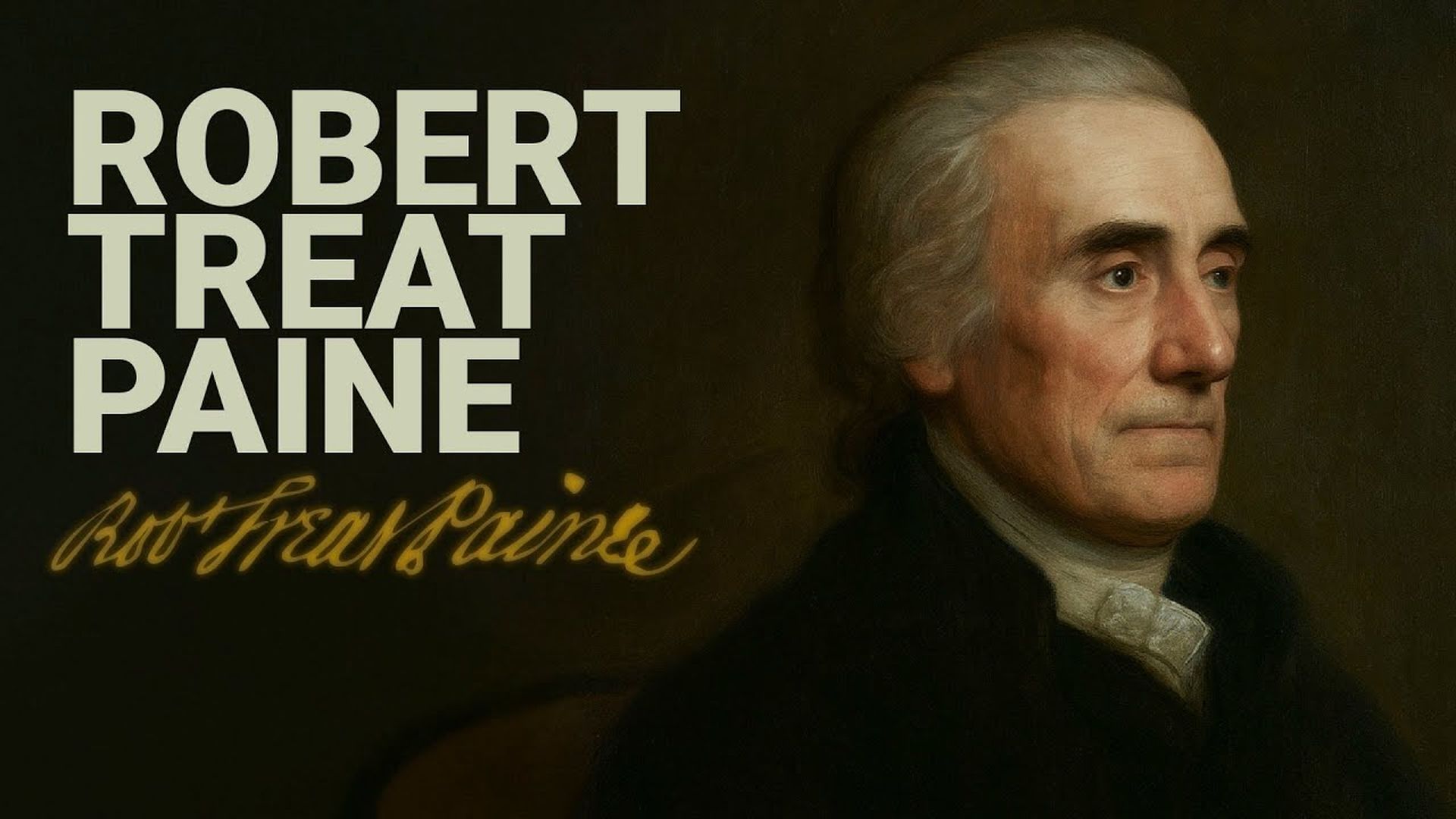
T5607-Not the Loudest Voice—but One of the Clearest - Robert Treat Paine
“Not the Loudest Voice—but One of the Clearest.” At 45 years old, Robert Treat Paine of Massachusetts left his mark on the Revolution not through fiery speeches or battlefield command—but through justice, clarity, and moral conviction. His revolution...
Available via subscription or rental
Already purchased? Sign In
Bundle Preview
This content is not available in your region
T5607-Not the Loudest Voice—but One of the Clearest - Robert Treat Paine
“Not the Loudest Voice—but One of the Clearest.”
At 45 years old, Robert Treat Paine of Massachusetts left his mark on the Revolution not through fiery speeches or battlefield command—but through justice, clarity, and moral conviction. His revolutionary path began in 1770 during the trial following the Boston Massacre, where he served as prosecutor—opposite John Adams. Two future signers, one courtroom, and one question: To whom does the law apply? Even then, Paine believed liberty must rest on principle, not revenge.
Though he once hoped peace might hold, when war came, he joined Congress and added his name to the Declaration of Independence, as the 7th signer. “July 4th, 1776. I wrote just one word in my diary: ‘Cool.’ Likely not the way you’d say it today—but for me, it meant calm, measured, and monumental. The gravity of that moment needed no flourish.”
After Congress, Paine became Massachusetts’ Attorney General, where he fought to uphold justice in the new republic—including prosecuting traitors and helping make Massachusetts the first state to abolish slavery. For Paine, the Declaration wasn’t just a revolt—it was a standard. We didn’t declare freedom to let it be rationed.
There are no statues to him. No swords bearing his name. But in ink and principle, his resolve helped shape the soul of the nation. May we still hear that voice today.
Categories: American History


